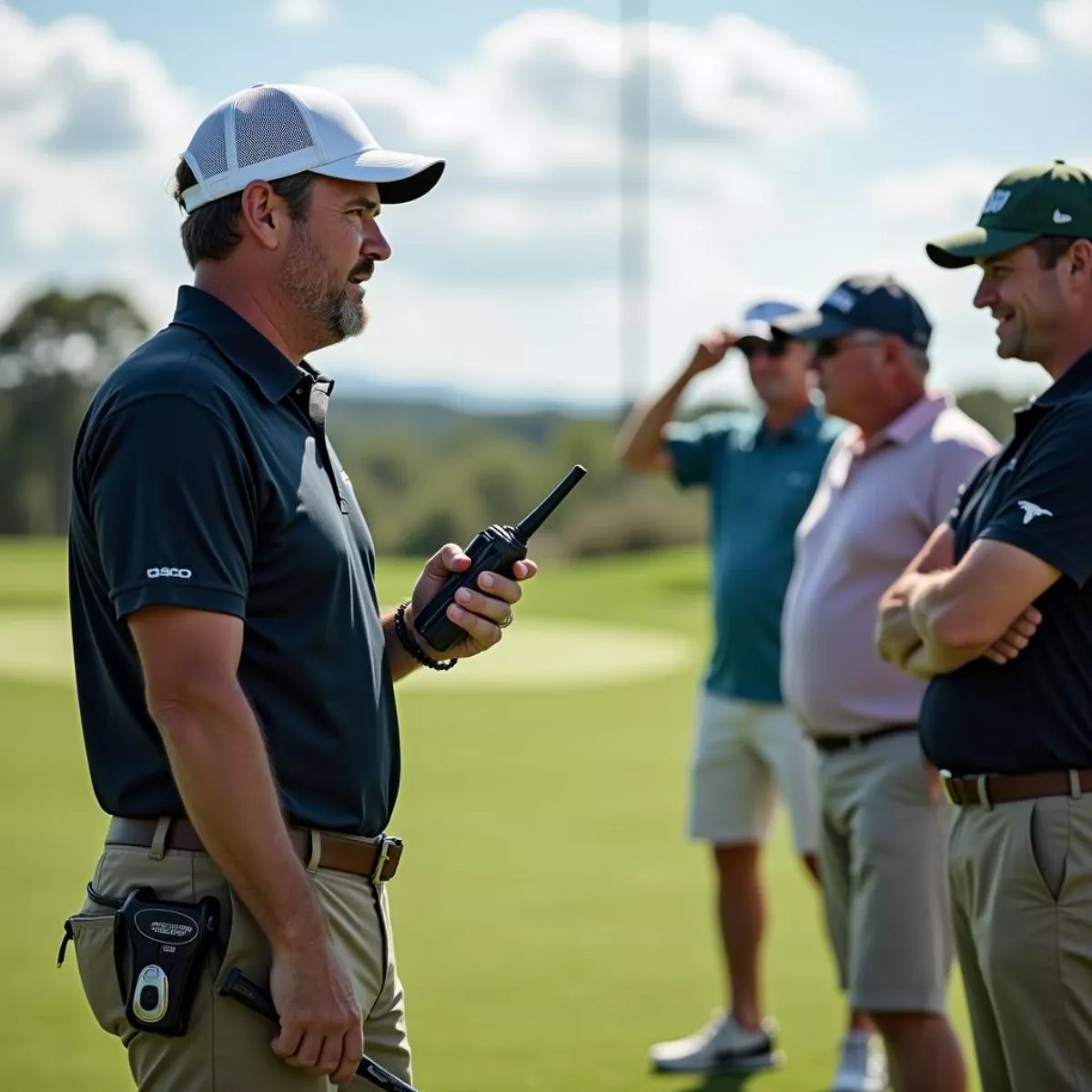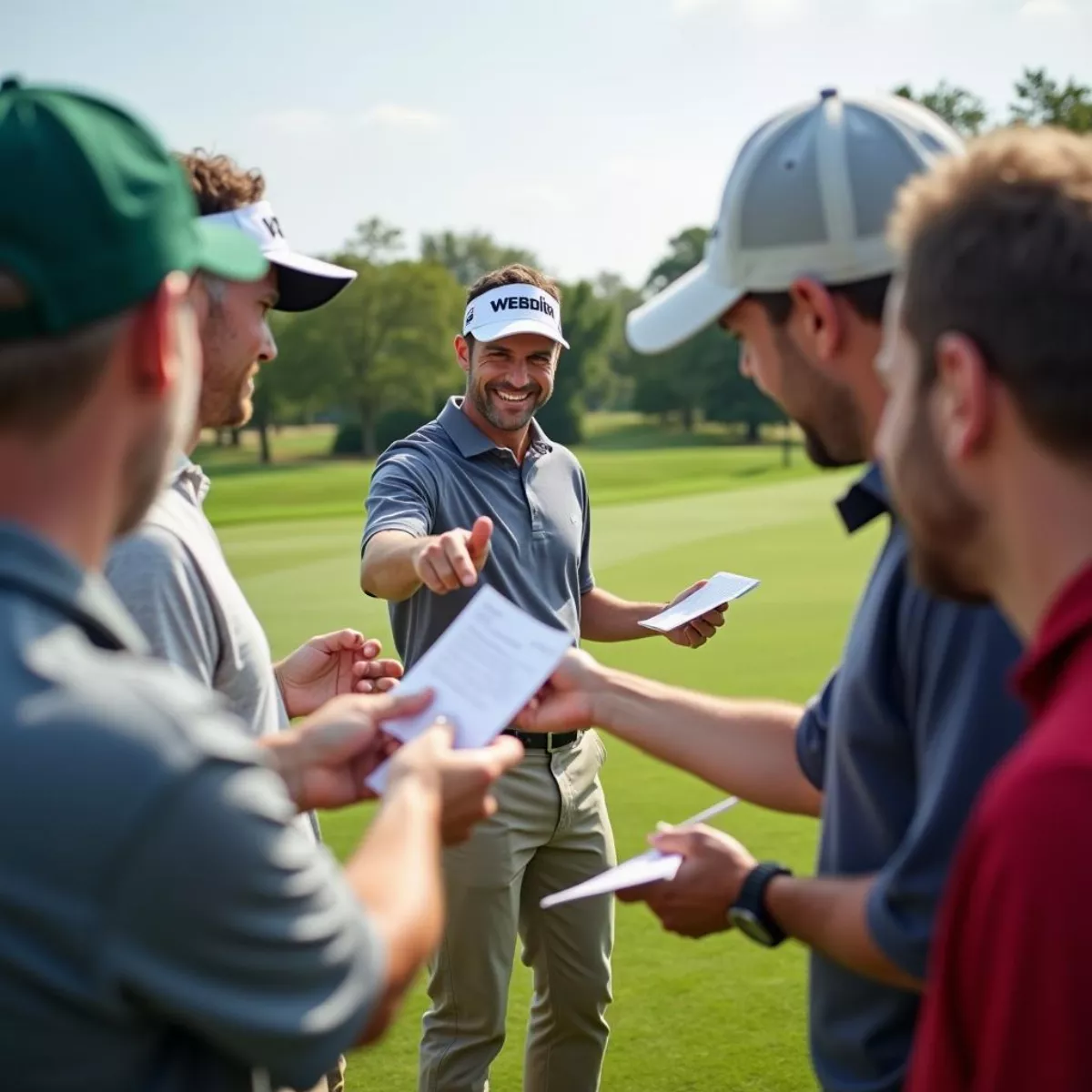If you’ve ever visited a golf course, you’ve probably noticed the person at the beginning of the course, checking in golfers and managing the flow of play. This individual is known as a golf starter. But what exactly does a golf starter do, and why are they so important to the overall golfing experience? In this article, we’ll explore the role of a golf starter, their responsibilities, importance in the game, and answer some frequently asked questions.
What is a Golf Starter?
A golf starter is a crucial employee at a golf course whose primary responsibility is to oversee the flow of golfers on the course. Essentially, the golf starter ensures that rounds of golf are played efficiently and in accordance with tee time schedules. While you might think that their job is simply to tick off names on a list, there’s much more to it.
Key Responsibilities of a Golf Starter
Here is a breakdown of what a golf starter typically does:
- Check-In Process: Welcoming golfers as they arrive, confirming their tee times, and collecting any necessary fees.
- Tee Time Management: Ensuring groups tee off in an orderly fashion, helping to maintain pace and control the traffic on the course.
- Course Knowledge: Providing information about the course’s layout, rules, and conditions. They often give tips on the best way to play certain holes.
- Monitoring Pace of Play: Keeping an eye on how fast groups are playing and, if necessary, encouraging those who are playing too slowly to keep up with the group ahead.
- Customer Service: Offering a friendly, welcoming atmosphere that enhances the overall golfer experience.
- Conflict Resolution: If there are disputes among players, the starter can mediate and help maintain a peaceful environment on the course.
The Importance of a Golf Starter
The role of a golf starter is vital to more than just keeping the game running smoothly. Here are some reasons why golf starters are important:
1. Enhancing the Experience
A friendly starter sets the tone for a golfer’s day. Their warm welcome and helpful advice can make a significant difference in how players feel as they begin their round.
2. Pace of Play Management
Pace of play is a crucial aspect of golf. No one wants to be stuck behind a slow group, prolonging their day. A golf starter can ensure that groups don’t lag behind, making for a more enjoyable experience for everyone.
 Golf starter managing pace of play
Golf starter managing pace of play
3. Course Familiarization
Since many golfers are not familiar with the specific layout or rules of a course, starters provide essential insights that can benefit players. They can share tips and local knowledge that help golfers navigate the course effectively.
4. Safety on the Course
A golf starter plays a vital role in maintaining safety by managing when players can tee off. This helps minimize the risk of accidents, ensuring golfers do not hit each other unintentionally.
Skills & Qualities of a Good Golf Starter
To be effective, a golf starter should possess the following skills and qualities:
- Strong Communication Skills: They must effectively communicate with golfers and staff.
- Excellent Customer Service: Providing a welcoming atmosphere is key to their role.
- Knowledge of the Game: They should have a solid understanding of golf rules and etiquette.
- Problem-Solving Abilities: A good starter must be able to quickly resolve conflicts and issues that arise.
- Patience and Diplomacy: Handling disputes and questions from golfers requires a calm demeanor.
 Golf starter welcoming golfers
Golf starter welcoming golfers
Golf Starter FAQs
1. How do I find out my tee time?
Most golf courses provide a tee time reservation system on their website. You can also call the course directly for up-to-date information.
2. What happens if I miss my tee time?
If you miss your tee time, the starter may try to accommodate you later in the day, but this is not guaranteed. It’s always best to arrive early.
3. Can I play without a reservation?
Some courses allow walk-up play, but it’s advisable to book a tee time in advance, especially during peak seasons or weekends.
4. What should I do if my group is playing slowly?
If you’re playing slower than the groups ahead of you, it’s courteous to allow faster groups to play through.
5. What do I do if there’s a dispute with another player?
Speak with the starter. They are trained to handle conflicts and will help mediate the situation.
6. Can golf starters give advice on how to play certain holes?
Yes, most starters have a wealth of knowledge about the course and can offer valuable tips on how to navigate challenging holes.
7. What if my group is larger than four players?
Most golf courses have a policy regarding group sizes. Larger groups may be required to break up into smaller ones. Check with the starter for guidance.
8. Are starters responsible for enforcing course rules?
Yes, part of the starter’s job is to ensure that players adhere to both the course’s rules and golf etiquette.
9. What is the best time to arrive at the course?
Arriving at least 30 minutes before your tee time is recommended to check in and warm up.
10. Do starters keep track of our score?
Generally, that’s the responsibility of the players themselves. However, starters may assist if there’s a scoring issue.
Key Takeaways
- A golf starter plays a crucial role in managing the flow of play and enhancing the overall golfing experience.
- Their responsibilities include checking in golfers, managing tee times, and providing insights about the course.
- Strong communication, customer service, and problem-solving skills are essential traits for an effective golf starter.
- Always communicate with the starter to ensure an enjoyable experience for everyone on the course.
Whether you’re an experienced golfer or just getting started, understanding the role of a golf starter can enhance your golf experience. With their expertise and friendly demeanor, they ensure every round of golf is not just a game, but a memorable outing. Remember to appreciate their hard work; after all, it’s all about enjoying the game you love!
Feel free to explore more questions regarding golf. For more detailed guides on golf etiquette and playing tips, check out our other articles here. If you’re looking for advanced golf strategies or resources, consider looking into reputable external sites such as Golf Digest for comprehensive articles and tips. Happy golfing!